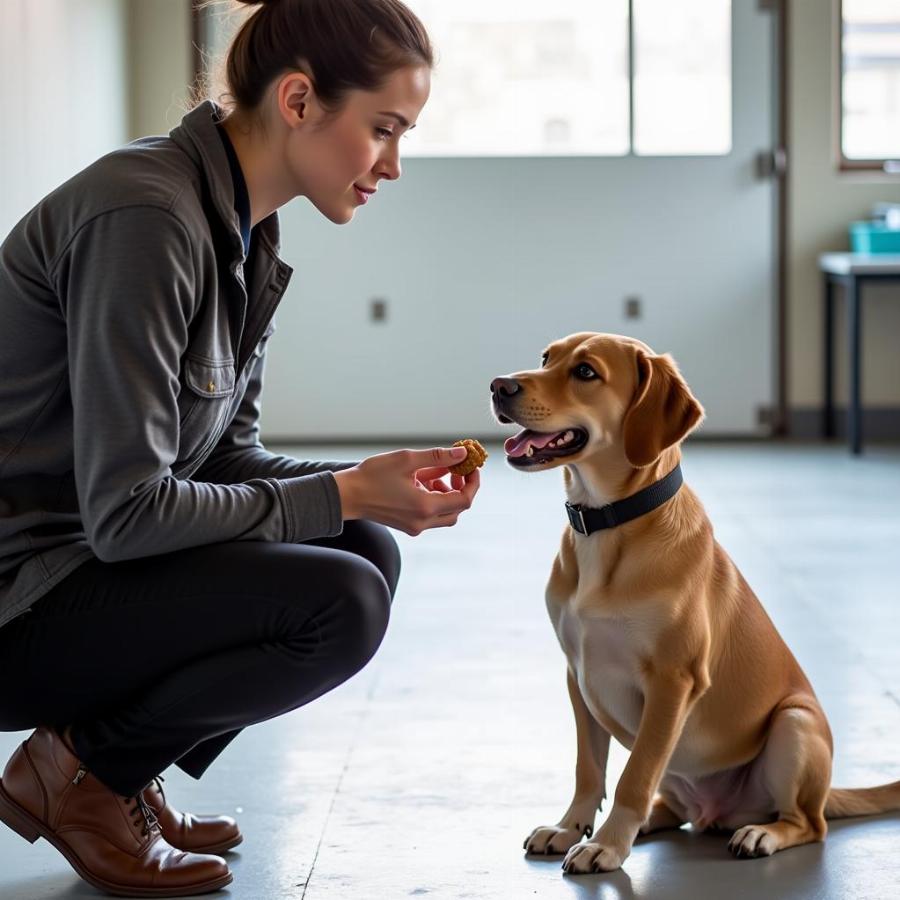My dog killed a rat. This seemingly simple statement can bring about a flurry of emotions, from pride in your dog’s hunting prowess to concern for their health. This article will address those concerns, providing you with a comprehensive guide on what steps to take after your canine companion has dispatched a rodent. We’ll explore potential health risks, preventative measures, and how to train your dog to avoid future encounters.
Understanding the Risks: Why “My Dog Killed a Rat” Is a Cause for Concern
While a dog’s natural instinct is to hunt, killing a rat can pose several health risks. Rats are known carriers of diseases, including leptospirosis, rat-bite fever, and toxoplasmosis. These diseases can be transmitted through direct contact with the rat, such as a bite or scratch, or indirectly, through contact with the rat’s urine or feces. Even if your dog appears healthy, it’s essential to monitor them for any signs of illness.
Leptospirosis: A Serious Threat
Leptospirosis is a bacterial infection that can affect both dogs and humans. Symptoms can range from mild fever and muscle aches to severe kidney and liver damage. If you suspect your dog has been exposed to leptospirosis, contact your veterinarian immediately.
Rat-Bite Fever: Another Potential Danger
Rat-bite fever, as the name suggests, is transmitted through the bite of an infected rat. This bacterial infection can cause fever, rash, muscle pain, and joint swelling in dogs. Prompt veterinary care is crucial for treating rat-bite fever.
Toxoplasmosis: A Risk for Pregnant Women
Toxoplasmosis is a parasitic infection that can be particularly dangerous for pregnant women. Dogs can contract toxoplasmosis by eating infected rats. While dogs rarely show symptoms of toxoplasmosis, they can shed the parasite in their feces, posing a risk to pregnant women who handle dog waste.
Preventing Future Encounters: Keeping Your Dog Safe
The best way to protect your dog from the risks associated with killing rats is to prevent future encounters. Here are some effective strategies:
- Eliminate Rat Attractants: Keep your yard clean and free of food debris, garbage, and standing water. Securely store pet food and birdseed.
- Rodent-Proof Your Home and Yard: Seal any cracks or holes in your home’s foundation and exterior walls. Trim bushes and trees away from your house.
- Train Your Dog: Teach your dog a strong “leave it” command to deter them from engaging with rats.
Training Your Dog: The “Leave It” Command
Teaching your dog the “leave it” command can be life-saving. Here’s a step-by-step guide:
- Start with a low-value treat: Hold the treat in your closed fist.
- Present your fist to your dog: When they try to sniff or paw at your hand, say “leave it” firmly.
- Wait until your dog backs off: Once they stop trying to get the treat, reward them with a different treat from your other hand.
- Repeat the process: Gradually increase the difficulty by using higher-value treats and placing the treat on the floor.
 Huấn luyện chó
Huấn luyện chó
What to Do If Your Dog Shows Symptoms
If your dog exhibits any signs of illness after killing a rat, such as lethargy, loss of appetite, vomiting, diarrhea, or fever, contact your veterinarian immediately. Early diagnosis and treatment are crucial for a positive outcome. dog show leads are also helpful to keep your dog under control during this time.
Conclusion
While it’s natural to be concerned if your dog killed a rat, by taking the appropriate precautions and seeking veterinary care when necessary, you can ensure your furry friend’s health and well-being. Remember, prevention and early intervention are key. Regular check-ups with your veterinarian and diligent monitoring of your dog’s behavior can help identify potential health issues early on.
FAQ
- Can my dog get rabies from a rat? While rats can carry rabies, it is extremely rare.
- Should I induce vomiting if my dog eats a rat? No, do not induce vomiting. Contact your veterinarian immediately.
- Are all rat poisons toxic to dogs? Yes, most rat poisons are toxic to dogs. Keep them out of reach.
- What are the signs of leptospirosis in dogs? Signs can include fever, lethargy, loss of appetite, vomiting, jaundice, and muscle pain.
- How is rat-bite fever treated in dogs? Rat-bite fever is typically treated with antibiotics.
You Might Also Be Interested In…
- Learn more about galliprant killed my dog
- Find out about freshpet killed my dog
Beaut Dogs is your trusted source for all things canine, offering expert advice and comprehensive resources for dog owners. From breed information to health and training tips, we’re here to help you navigate the world of dog ownership. When you need support or further assistance, reach out to us via Email at [email protected] for detailed and accurate information from Beaut Dogs.